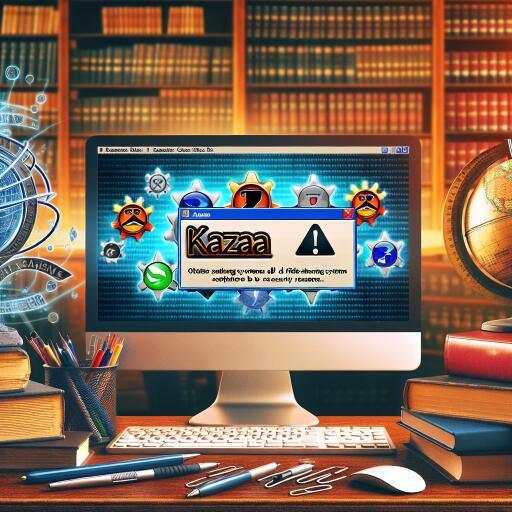Exploring the Ghosts of File-Sharing: A Retro Advisory for US Colleges
As the digital age dawned, the early 2000s saw university campuses across the United States become the wild west of file-sharing. With the introduction of high-speed internet, a generation of tech-savvy students found themselves enthralled by the possibilities of Napster, Kazaa, LimeWire, and BitTorrent. These platforms became synonymous with digital piracy, igniting a cat-and-mouse game between students and the music and film industries.
The Higher Education Opportunity Act (HEOA) of 2008 sought to combat this widespread copyright infringement on college campuses. The legislation mandated educational institutions to develop and enforce policies against illegal file-sharing, coupling this requirement with the threat of financial repercussions. Institutions found non-compliant with the HEOA faced the potential loss of federal funding, a significant deterrent given the reliance of many on such funding.
However, the long-term impact of the HEOA’s provisions raises questions. By highlighting the issue of copyright infringement and the tools used to infringe, it’s possible that awareness was raised more than deterrence achieved. Yet, this conversation has taken a curious turn as we move further into the digital age.
Fast forward to the present day, and it’s clear that the landscape of file-sharing has evolved. Despite this, reports from 2024 indicate that numerous American universities are still cautioning students about the dangers of using a bygone era of file-sharing software. These warnings refer to applications that, for the most part, rest in the digital graveyard.
Boston University, for instance, lists an extensive array of nearly extinct file-sharing applications in its advisories. This includes, but is by no means limited to, the likes of Acquisition, BearShare, Morpheus, and LimeWire. Similarly, Stanford University’s advisory—last updated in March 2024—reads like a relic from the past. It includes cautions against the use of Skype and World of Warcraft for their underlying file-sharing technologies. While these platforms did indeed use file-sharing protocols such as BitTorrent for legitimate distribution purposes, conflating them with the piratical activities of yesteryears seems anachronistic.
For millennials, the mention of these platforms may stir a sense of nostalgia. However, the current generation of students is more likely to scratch their heads in bewilderment. Today’s digital natives have moved on to more sophisticated file-sharing solutions. Platforms like BitTorrent remain in use, but they share the stage with cloud-based services such as Dropbox and Google Drive. These modern services offer streamlined, user-friendly experiences far removed from the clunky interfaces and legal grey areas that characterized early 2000s file-sharing.
This situation highlights a generational shift in both technology use and awareness. While the intention behind these university warnings is undoubtedly rooted in a desire to promote copyright compliance, they may need to update their approaches to reflect the current digital environment.
In conclusion, as we continue to navigate the complexities of digital copyright and file-sharing, the journey from Kazaa to Google Drive serves as a reminder of the rapid pace of technological change. For educational institutions, keeping advisories current is not just about compliance with the law; it’s about providing relevant and meaningful guidance to a new generation of digital denizens.










